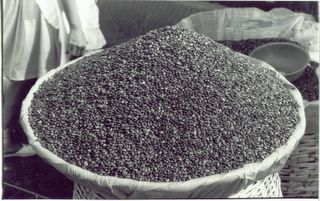If you have been following the news about Bolivia lately, you've heard about Evo Morales' controversial agrarian reform plans. These reforms are necessary because, according to the Washintgon Post:
About 90 percent of Bolivian land is owned by the wealthiest 7 percent of the population. Imbalances like that have helped make Bolivia South America's poorest nation: About 63 percent of its citizens -- and nearly 80 percent of its rural population -- live in poverty.
This is the same land imbalance that exists, and has existed for nearly 500 years, in Guatemala. My senior thesis "Un Pueblo Sin Tierra es un Pueblo Sin Paz: the History of Land Tenure in Guatemala" discusses this cyclical history, which sadly repeats itself the world over, of land tenure, indigenous communities, poverty, and genocide. The fact that Bolivia looks like Guatemala, both countries with large indigenous populations, is not surprising. And the fact that the people have voted for a leader who promises to change the inequity is also not surprising. In the 1950's in Guatemala there was a brief Democratic period of time, when democratically elected leaders promised the same reform that Morales promises:
Morales has said much of his nation's land is not being used productively, and he complains that large swaths were given to wealthy elites during the dictatorships of the 1970s. Under his plan, if the government deems land unproductive or obtained illegally, it is subject to confiscation and redistribution.
When this tactic was attempted in Guatemala, it was of course found unacceptable to the U.S. banana plantation owners who held vast territories, most of which sat idle, while the majority of Guatemalans were born into suffocating poverty, living and dying landless, unable to feed their children, unable to do anything but become indentured servants for these plantations owners.
What remains to be seen in Bolivia, is if the same story of U.S intervention will be played out. With banana plantation owners upset about losing land, and only being compensated by what they themselves had claimed the land was worth on their tax records from previous years, the U.S. State Department decided to step in. Our fair country helped a handful of disgruntled old guard military leaders, hiding out in Honduras, to stage a coup. Guatemala had seen 10 years of democracy, which was squashed out in a matter of days thanks to our "democratic" leaders. Will the same happen in Bolivia?



